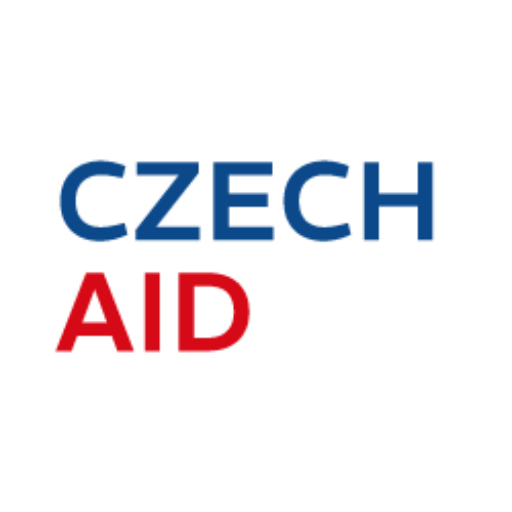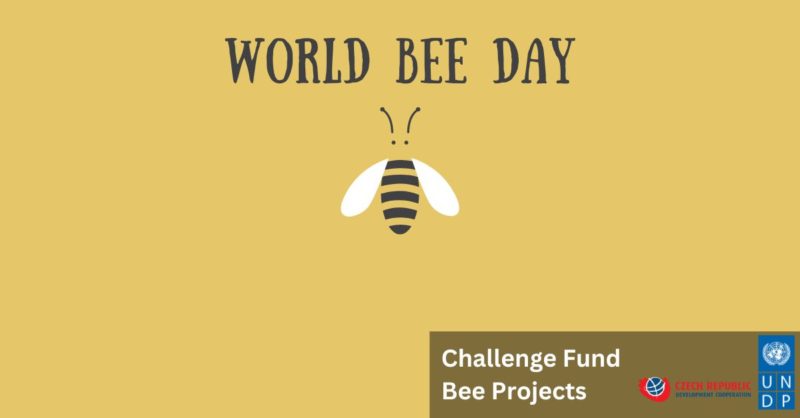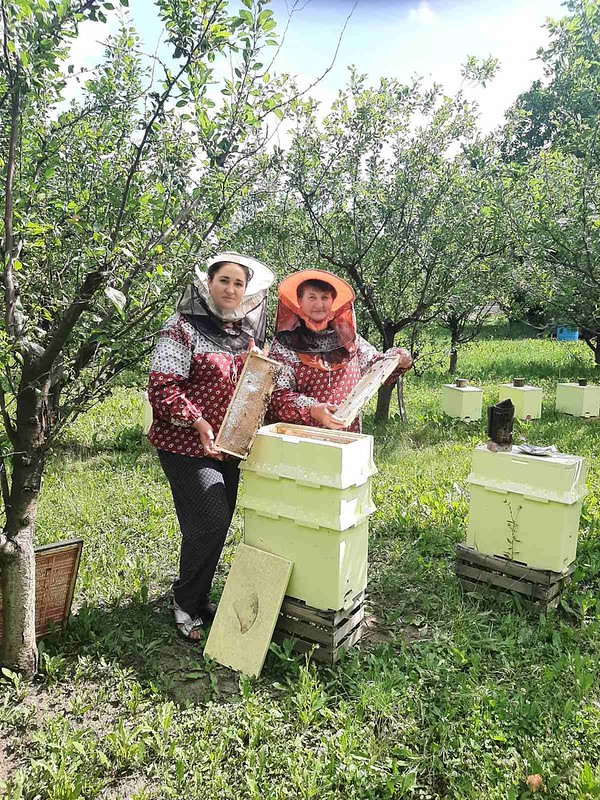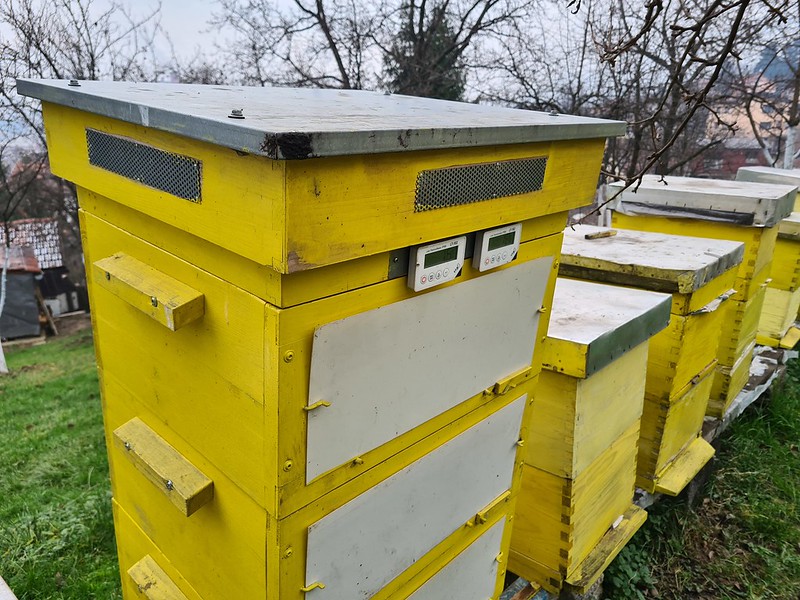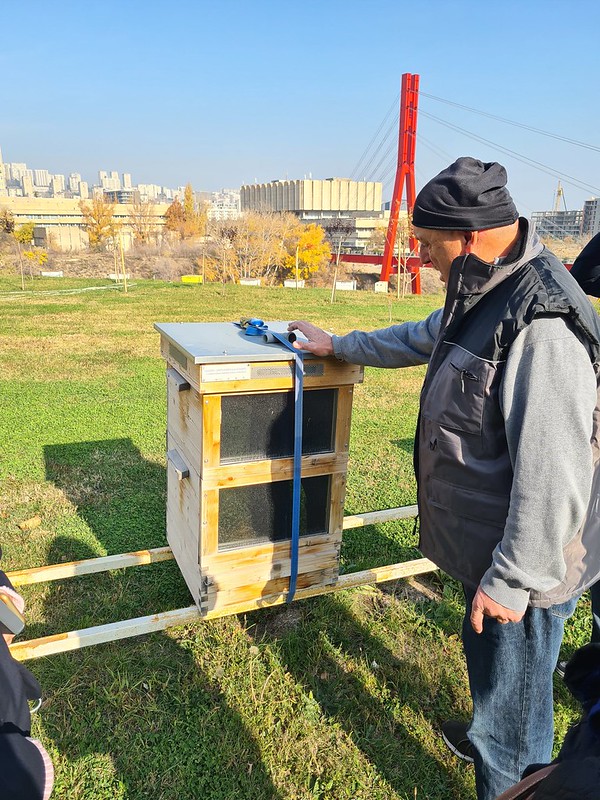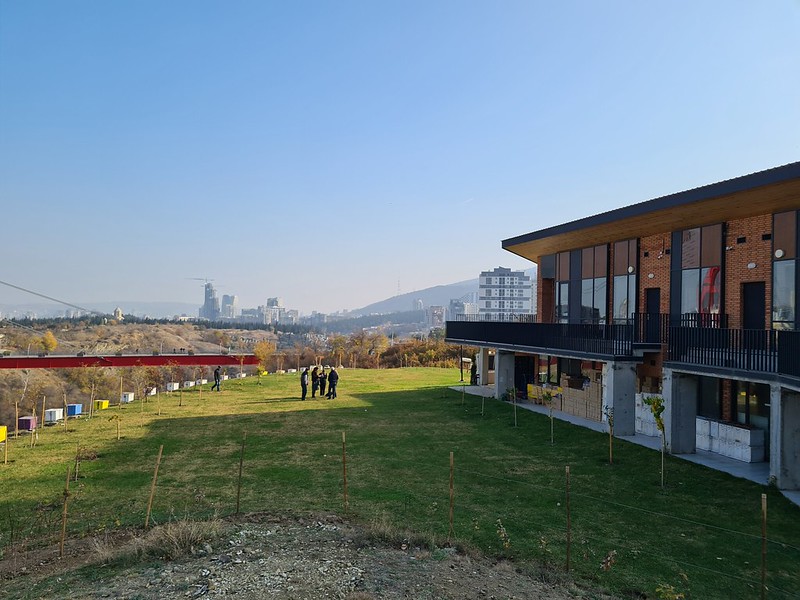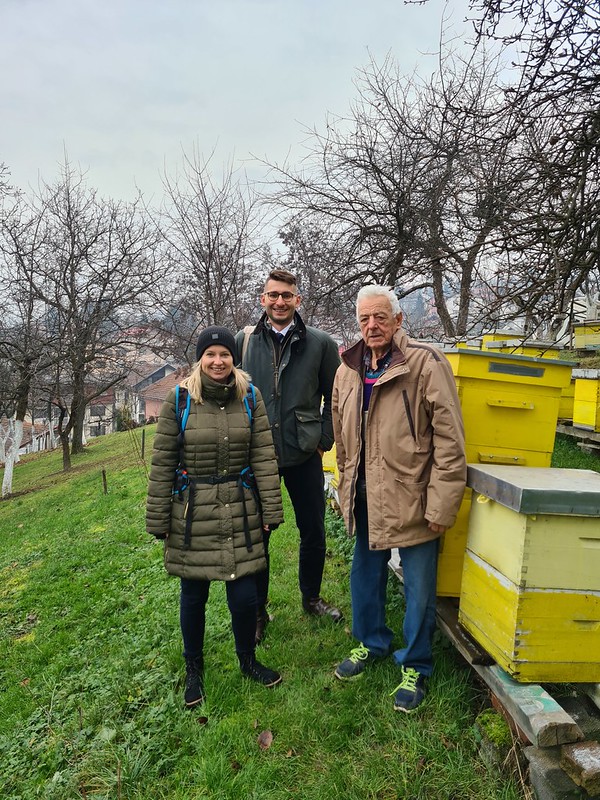World Bee Day – What are the differences in beekeeping in Georgia, Bosnia and Herzegovina and Moldova?
Every year on 20th of May, we observe a World Bee Day, which aims at increasing awareness of bees and other pollinators and their contribution to environmental and social resilience.
Czech-UNDP Partnership previously supported bee projects in Bosnia and Herzegovina, Georgia and currently supports the ongoing project in Moldova.
Project innovator Jan Rája from Thermosolar Hive talks about his experience of beekeeping in different countries.
You are an experienced project innovator – you had Challenge Fund projects in Bosnia and Herzegovina and Georgia previously. Now you implement a new project in Moldova. What are the biggest differences for project implementation in these countries?
The differences are noticeable in all three countries from a beekeeping point of view, although in the case of Moldova we are only halfway through the project and we are only learning about a number of differences in the process. However, the difference in beekeeping does not mean everything with regard to the implementation of projects, other criteria are of course also important, such as the quality of cooperation with the partner entity, etc. In Bosnia and Herzegovina, we managed to attract a number of foreign guests from Serbia and Croatia as part of the project and the project was also very well publicized in the media. On the other hand, in Georgia it was interesting to observe fundamental differences in beekeeping and the approach of individual beekeepers, which were also influenced by regional differences and geomorphological differences. For example, in the project we had beekeepers beekeeping by the sea, in fertile lowlands, wine-growing hills with minimal rainfall or also beekeeping high in the Caucasus and these differences fundamentally shaped their approach. At first glance, Moldova seems more integrated from a beekeeping point of view, and therefore we expect a simpler course of implementation, but of course it is still open as the project is ongoing.
Could you briefly introduce your project in Moldova and how it differs from your previous projects?
In Moldova, we are trying to implement a project that will bring local beekeepers new beekeeping know-how, including advanced methodologies, as well as a non-chemical solution to the biggest beekeeping problem, which is the Varroa destructor mite. Against it, the Moldovan beekeepers involved in the project will be able to use the therapeutic Thermosolar hive, which can kill mites only with the help of the sun, thus protecting bee colonies and preventing the accumulation of chemical drug residues in honey. The local agricultural sector was strongly affected by changes in the previous decades, which led to a significant decline. We would like to contribute in a small way to the fact that at least beekeeping will go in the opposite direction to growth and development. Unlike Georgia and Bosnia and Herzegovina, the beekeeping industry in Moldova is far more export-oriented (primarily to the EU), despite the fact that Georgia and BiH mainly export honey, but also other products abroad. This brings greater challenges, as much more emphasis is placed on the quality of honey and other products. In this regard, a change is taking place even now in the EU, and the monitoring of problematic imports is becoming stricter, and this trend can be expected in the future as well.
Your local partner is The National Association of Beekeepers of the Republic of Moldova, how did you manage to find them and how is the cooperation with them so far?
We were looking for a large and strong partner who can reach a wide range of Moldovan beekeepers and thus be able to pass on the necessary information and knowledge so that the project will be as successful as possible in this direction. In the end, the experience from the implementation in the previous two countries also helped us to take this step. At first I was apprehensive when approached, because nationally active beekeeping associations usually do not have a great desire to get involved in projects of this type and size, but it was exactly the opposite with our Moldovan partner, he welcomed the project very much and the cooperation with them has been excellent so far.
Why do you think that thermotherapy in Moldova has a strong potential for bee industry?
As far as we can assess so far, beekeepers in Moldova are willing to try new approaches that overcome fundamental problems in their beekeeping. And number one in this regard is precisely the Varroa mite and chemical drugs that are insufficiently effective and at the same time problematic for the health of bees and honey consumers. An example can be elsewhere a very atypical applied experiment with thermotherapy in Moldova, although the resulting treatment device is too complicated for use in beekeeping practice. However, we clearly perceive the interest in a different treatment approach and therefore see a solid potential here for thermotherapy and the Thermosolar Hive.
There are several female beekeepers taking part in the project. What new things can women bring to the beekeeping industry?
Female beekeepers themselves bring a new and different approach to this primarily male hobby/occupation. It is also a very necessary approach, because women can perceive and, above all, communicate differently and thereby eliminate some of the more problematic points that otherwise occur in a purely male environment and which we perceive in beekeeping, even here in the Czech Republic.
How do you plan to ensure that the Thermosolar hives will be widely used by local beekeepers? What is your promotion plan?
A big advantage is that we work with a big partner with an impact on a significant part of beekeepers in Moldova. Here we see the first important step in the transfer of information and experience to beekeepers who will use thermosolar hives. Because “Word of Mouth” is the best marketing from our point of view. At the same time, we will use our partner to further promote the project and eventually thermotherapy in the thermosolar beehive.
What is the ideal impact of the project for you?
The impact of the project should primarily be that it changes the participants’ view of some areas of beekeeping, opens the door to new know-how and beekeeping methodologies, and can thus improve both the beekeeping of the beekeepers involved, as well as the health status. and the vitality of their colonies. At the same time, in the long term, it can solve the most fundamental beekeeping problem of today and bring about a more ecological way of keeping bees.
What would be your advice to anybody who is considering applying for Challenge Fund in Moldova?
If you have an excellent idea that could help Moldova in some sector, be sure to think about submitting an application, try to convince potential partners and find out their real need for your know-how. And if everything comes together, don’t hesitate to submit an application.
About the Czech-UNDP Partnership for SDGs
The partnership of the Czech Republic and UNDP supports innovative solutions from the private sector of the Czech Republic, non-governmental organizations, universities, state institutions, research centers and individuals for solving specific development challenges in priority countries (Bosnia and Herzegovina, Georgia, Moldova, Ethiopia, Cambodia, Zambia). The implementation of projects and expertise is financially supported by the Ministry of Foreign Affairs of the Czech Republic.

